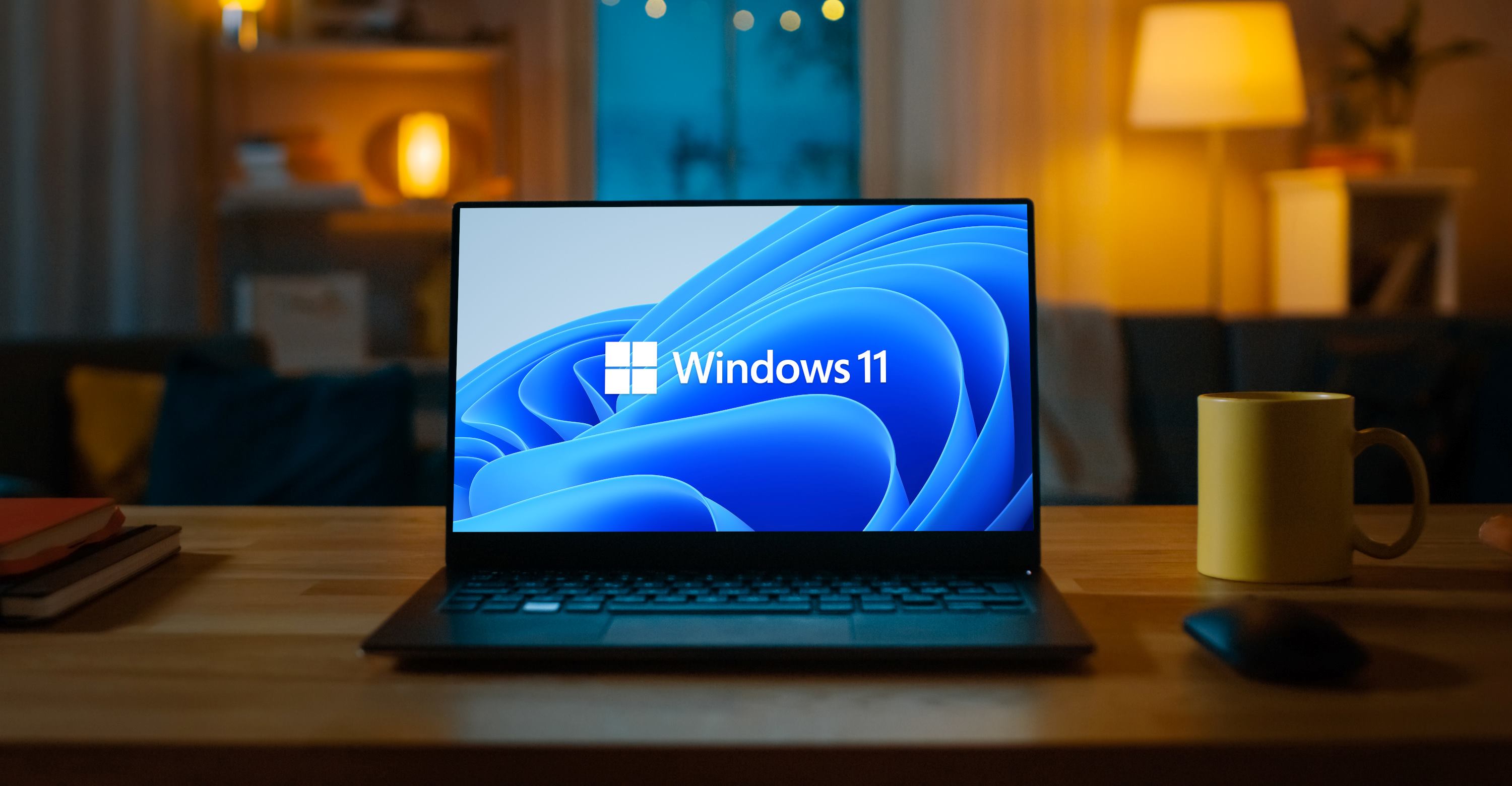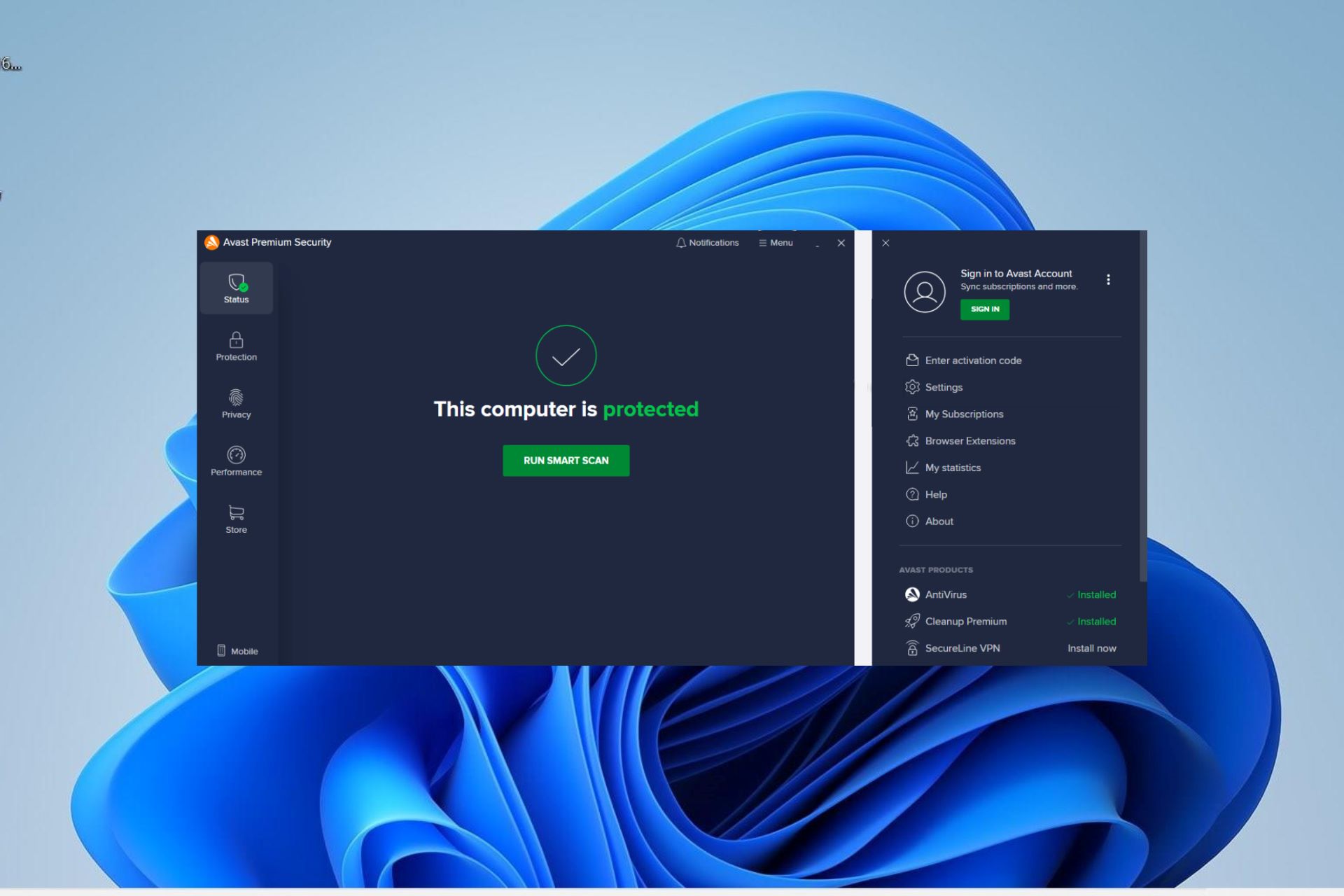Introduction
Have you ever felt frustrated by the sluggish performance of your web browser? It's a common issue that many people encounter, and it can be incredibly exasperating. When your browser takes ages to load pages, respond to your commands, or crashes frequently, it can disrupt your workflow and hinder your online experience. Understanding the reasons behind a slow browser can help you address the issue effectively and restore your browsing speed to its optimal state.
A slow browser can stem from various factors, ranging from outdated software to excessive resource consumption. By delving into the potential causes, you can gain insights into how to rectify the problem and prevent it from recurring. In this article, we'll explore the common reasons why your browser might be performing sluggishly and provide practical tips to help you troubleshoot and resolve these issues.
So, if you've ever found yourself wondering, "Why is my browser so slow?" you're in the right place. Let's embark on a journey to uncover the underlying factors that could be impeding your browsing speed and learn how to address them effectively.
Outdated Browser
An outdated browser can significantly contribute to sluggish browsing experiences. As technology advances, web developers continually optimize their code to align with the latest web standards and security protocols. Consequently, older browser versions may struggle to render modern websites efficiently, leading to slow loading times and compatibility issues.
When you use an outdated browser, you may encounter various performance issues, such as delayed page loading, unresponsive tabs, and frequent crashes. This can be attributed to the browser's inability to interpret and execute the latest web technologies and coding practices effectively.
Moreover, outdated browsers are more susceptible to security vulnerabilities, as they lack the latest patches and updates designed to address potential threats. This exposes your browsing activities to increased risks, including malware infiltration and data breaches.
To mitigate the impact of an outdated browser on your browsing speed and security, it's crucial to keep your browser up to date. Most modern browsers, such as Google Chrome, Mozilla Firefox, and Microsoft Edge, offer automatic updates to ensure that you are using the latest version. These updates not only enhance performance and security but also introduce new features and improvements to enrich your browsing experience.
Regularly updating your browser is a simple yet effective way to address performance issues stemming from outdated software. By staying current with the latest browser version, you can enjoy faster page loading, improved compatibility with websites, and enhanced protection against online threats.
In addition to updating your browser, it's advisable to periodically clear your browsing history, cache, and cookies. This maintenance routine can further optimize your browser's performance and contribute to a smoother and more responsive browsing experience.
By prioritizing the maintenance and update of your browser, you can mitigate the impact of outdated software on your browsing speed and security, ensuring a seamless and secure online experience.
Too Many Extensions
The excessive use of browser extensions can significantly impede the speed and performance of your web browser. While extensions are designed to enhance your browsing experience by offering additional functionalities and features, having too many of them installed can lead to resource overconsumption and compatibility issues.
Each browser extension you install becomes an integral part of your browsing environment, utilizing system resources and potentially conflicting with other extensions or the browser itself. This can result in increased memory usage, slower page loading times, and overall sluggish performance.
Furthermore, certain extensions may continuously run background processes or scripts, consuming CPU and memory even when you're not actively using their features. This can strain your system resources, leading to a noticeable decline in browsing speed and responsiveness.
To address the impact of excessive extensions on your browser's performance, it's essential to evaluate and manage your extension inventory regularly. Start by identifying the extensions that you genuinely use and rely on for your daily browsing activities. Consider whether each extension provides substantial value and aligns with your specific needs.
Next, assess the resource consumption of each extension. Some extensions may have a more significant impact on performance due to their intensive resource usage or inefficient coding. You can use your browser's built-in task manager or third-party tools to monitor the resource utilization of individual extensions and identify any potential bottlenecks.
Once you've identified the essential extensions and evaluated their resource impact, consider disabling or removing those that are redundant or seldom used. By decluttering your browser from unnecessary extensions, you can alleviate the strain on system resources and improve overall browsing speed and responsiveness.
Additionally, be mindful of the permissions and access levels granted to your extensions. Some extensions may request extensive permissions that could compromise your privacy and security. Review the permissions granted to each extension and revoke any unnecessary access to safeguard your browsing activities and data.
By optimizing your extension usage and streamlining your browser environment, you can mitigate the performance impact of excessive extensions and enjoy a faster, more efficient browsing experience. Prioritizing quality over quantity when it comes to browser extensions can contribute to a smoother and more responsive browsing environment, allowing you to make the most of your online activities without compromising speed and performance.
High Resource Usage
High resource usage is a prevalent factor contributing to slow browser performance. When your browser consumes an excessive amount of system resources, such as CPU, memory, and network bandwidth, it can lead to sluggish page loading, unresponsive tabs, and overall browsing inefficiency.
One of the primary culprits of high resource usage is the simultaneous execution of multiple tabs and windows. Each open tab or window in your browser requires system resources to render and maintain its content. As you open more tabs, especially those containing multimedia content or complex web applications, the demand for resources increases, potentially causing your browser to become unresponsive or slow to load new pages.
Moreover, certain websites and web applications are designed with resource-intensive elements, such as high-resolution images, videos, or dynamic scripts. When you visit such sites, your browser must allocate additional resources to render and process these elements, leading to increased resource consumption and potential performance degradation.
Another common contributor to high resource usage is the presence of poorly optimized or malfunctioning browser extensions and plugins. These add-ons may consume excessive memory or CPU cycles, especially if they run background processes or scripts continuously. Additionally, outdated or incompatible extensions can conflict with the browser's core functionalities, further exacerbating resource consumption and impeding browsing speed.
To address the impact of high resource usage on your browser's performance, consider implementing the following strategies:
-
Tab Management: Limit the number of open tabs and windows, especially when dealing with resource-intensive content. Consider using browser features or extensions that allow you to suspend or unload inactive tabs to free up system resources.
-
Extension Optimization: Regularly review and optimize your browser extensions and plugins. Remove or disable those that are redundant, outdated, or resource-intensive. Ensure that the remaining extensions are from reputable sources and are actively maintained to minimize potential performance issues.
-
Hardware Upgrade: If you frequently encounter high resource usage due to demanding web applications or multimedia content, consider upgrading your system's hardware, such as adding more RAM or upgrading to a faster CPU. This can provide your browser with the necessary resources to handle complex web content more efficiently.
By addressing high resource usage through effective tab management, extension optimization, and potential hardware upgrades, you can alleviate the strain on your system resources and enhance your browser's performance. These proactive measures can contribute to a smoother and more responsive browsing experience, allowing you to navigate the web with improved speed and efficiency.
Internet Connection Issues
Internet connection issues can significantly impact the speed and responsiveness of your web browser, leading to frustrating browsing experiences. When your browser struggles to establish and maintain a stable connection to the internet, it can manifest in various symptoms, including slow page loading, frequent timeouts, and intermittent connectivity disruptions.
One of the primary contributors to internet connection issues is network congestion or bandwidth limitations. When multiple devices within your network compete for limited bandwidth, it can result in reduced internet speeds and increased latency, affecting your browsing experience. Additionally, peak usage times or network congestion in your area can further exacerbate these issues, leading to slower page loading and delayed data transmission.
Furthermore, network hardware and infrastructure issues, such as faulty routers, damaged cables, or outdated network equipment, can impede the stability and speed of your internet connection. These physical factors can introduce signal interference, packet loss, or connectivity disruptions, impacting your browser's ability to retrieve and display web content efficiently.
To address internet connection issues and improve your browsing speed, consider implementing the following measures:
-
Network Troubleshooting: Start by diagnosing potential network issues within your home or office environment. Check the status of your network hardware, including routers, modems, and cables, to ensure they are functioning correctly. Identify and rectify any physical or hardware-related issues that may be affecting your internet connection.
-
Bandwidth Management: If network congestion is a recurring issue, consider implementing bandwidth management solutions, such as Quality of Service (QoS) settings on your router, to prioritize critical tasks and applications, such as web browsing. This can help allocate available bandwidth more efficiently and mitigate the impact of network congestion on your browsing speed.
-
Internet Service Provider (ISP) Communication: If you consistently experience slow browsing speeds and connectivity issues, reach out to your ISP to inquire about potential service disruptions, network maintenance, or performance upgrades. Your ISP can provide insights into any ongoing network issues and offer guidance on optimizing your internet connection for improved browsing performance.
By addressing internet connection issues through proactive troubleshooting, bandwidth management, and effective communication with your ISP, you can enhance the stability and speed of your internet connection, leading to a smoother and more responsive browsing experience. These measures can help mitigate the impact of network-related issues on your browser's performance, allowing you to enjoy faster page loading and seamless web navigation.
Malware or Adware
Malware and adware pose significant threats to both the security and performance of your web browser. These malicious entities can clandestinely infiltrate your system, compromising your browsing experience and potentially exposing your sensitive information to unauthorized access.
Malware, short for malicious software, encompasses a broad range of harmful programs designed to disrupt normal computer operations, steal personal data, or gain unauthorized access to system resources. When your browser becomes infected with malware, you may notice a myriad of adverse effects, including sudden slowdowns, unexplained pop-up ads, unauthorized changes to browser settings, and redirection to suspicious websites. These symptoms can severely impede your browsing speed and overall online safety.
Similarly, adware, a type of potentially unwanted software (PUP), is designed to deliver intrusive advertisements and collect user data for targeted marketing purposes. While adware may not always exhibit overtly malicious behavior, its presence can significantly impact browsing performance by inundating your browser with unwanted ads, consuming system resources, and tracking your online activities without consent.
To mitigate the impact of malware and adware on your browser's performance, it's crucial to implement robust security measures and proactive malware prevention strategies. Start by equipping your system with reputable antivirus and antimalware software, regularly updating their virus definitions, and performing comprehensive system scans to detect and remove any malicious entities.
Additionally, exercise caution when downloading and installing software or browser extensions from unverified sources, as these can serve as potential entry points for malware and adware. Stick to official app stores and trusted websites to minimize the risk of inadvertently introducing malicious software into your system.
Furthermore, consider implementing browser-based security features, such as pop-up blockers, phishing protection, and safe browsing settings, to fortify your browser's defenses against malicious threats. These built-in security measures can help prevent unauthorized intrusions and mitigate the impact of adware-driven advertisements on your browsing experience.
By prioritizing proactive malware detection and prevention, you can safeguard your browser from the detrimental effects of malware and adware, ensuring a faster, more secure browsing environment. These security measures play a pivotal role in preserving your online safety and optimizing your browsing speed, allowing you to navigate the web with confidence and efficiency.
Hardware Limitations
Hardware limitations can significantly impact the performance of your web browser, especially on older or less powerful devices. When your system lacks the necessary hardware resources to handle modern web content and applications, it can lead to noticeable slowdowns, unresponsive behavior, and overall browsing inefficiency.
One of the primary hardware limitations that can affect browsing speed is insufficient RAM (Random Access Memory). When your system has limited RAM capacity, it may struggle to efficiently manage the multitude of processes and data required for seamless web browsing. As a result, your browser may experience frequent slowdowns, especially when dealing with resource-intensive websites or multimedia content.
Similarly, an outdated or underpowered CPU (Central Processing Unit) can contribute to slow browser performance. The CPU plays a crucial role in processing and executing the instructions required to render web content, handle browser tasks, and manage system resources. If your CPU lacks the necessary processing power, it may struggle to keep up with the demands of modern web applications, leading to sluggish page loading and unresponsive tabs.
Additionally, the storage type and speed of your device, such as traditional hard disk drives (HDDs) versus solid-state drives (SSDs), can impact browser performance. Slow storage devices may result in delayed data retrieval and slower overall system responsiveness, affecting the speed at which your browser can access and load web content.
To address hardware limitations and improve your browser's performance, consider the following strategies:
-
Hardware Upgrades: If your system's hardware limitations significantly impede browsing speed, consider upgrading critical components such as RAM, CPU, or storage. Increasing RAM capacity, upgrading to a faster CPU, or transitioning to an SSD can provide your system with the necessary resources to handle modern web content more efficiently.
-
Resource-Efficient Browsing: Optimize your browsing habits to minimize the strain on hardware resources. Limit the number of open tabs, avoid running resource-intensive applications in the background, and prioritize lightweight browser extensions to reduce the overall demand on your system.
-
Browser Selection: Consider using lightweight or resource-efficient browsers, especially on older or less powerful devices. Some browsers are designed to consume fewer system resources while still delivering a seamless browsing experience, making them well-suited for hardware-constrained environments.
By addressing hardware limitations through strategic upgrades and resource-efficient browsing practices, you can enhance your browser's performance and mitigate the impact of hardware constraints on your overall browsing experience. These proactive measures can contribute to a smoother and more responsive web navigation, allowing you to make the most of your online activities without being hindered by hardware-related slowdowns.
Conclusion
In conclusion, the speed and performance of your web browser are influenced by a multitude of factors, ranging from software-related issues to hardware limitations and external connectivity challenges. By understanding the common culprits behind a slow browser and implementing proactive strategies to address them, you can significantly enhance your browsing experience and optimize your online productivity.
Outdated browsers can impede your browsing speed and expose you to security vulnerabilities. By prioritizing regular updates and maintenance, you can ensure that your browser remains equipped to handle modern web content efficiently while benefiting from enhanced security features and performance optimizations.
The excessive use of browser extensions can strain system resources and lead to sluggish performance. Through mindful extension management and optimization, you can streamline your browsing environment, alleviate resource overconsumption, and foster a more responsive and efficient browsing experience.
High resource usage, often stemming from multitasking and resource-intensive web content, can hinder browsing speed. By implementing effective tab management, optimizing browser extensions, and potentially upgrading hardware resources, you can mitigate the impact of resource constraints and enjoy faster page loading and seamless web navigation.
Internet connection issues, such as network congestion and hardware-related disruptions, can impede your browsing speed and stability. Through proactive network troubleshooting, bandwidth management, and effective communication with your Internet Service Provider (ISP), you can fortify your internet connection and minimize the impact of connectivity challenges on your browsing experience.
The presence of malware and adware can compromise both the security and performance of your browser. By prioritizing robust security measures, proactive malware prevention, and cautious browsing habits, you can safeguard your browser from malicious threats and ensure a faster, more secure online environment.
Hardware limitations, including insufficient RAM, outdated CPUs, and slow storage devices, can hinder browsing speed, especially on older or less powerful devices. By considering hardware upgrades, optimizing browsing habits, and selecting resource-efficient browsers, you can mitigate the impact of hardware constraints and enjoy a smoother and more responsive browsing experience.
In essence, by addressing these common factors contributing to slow browser performance, you can optimize your browsing speed, enhance your online security, and elevate your overall web navigation experience. Prioritizing regular maintenance, proactive troubleshooting, and strategic optimizations can empower you to make the most of your online activities, ensuring that your browser operates at its optimal speed and efficiency.

























